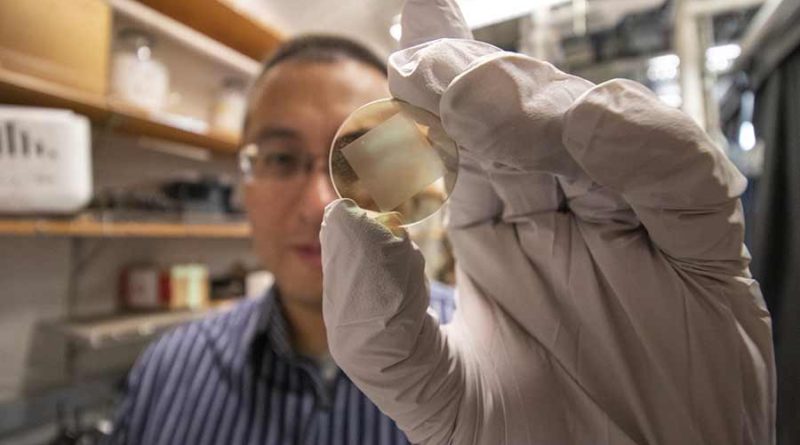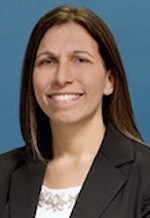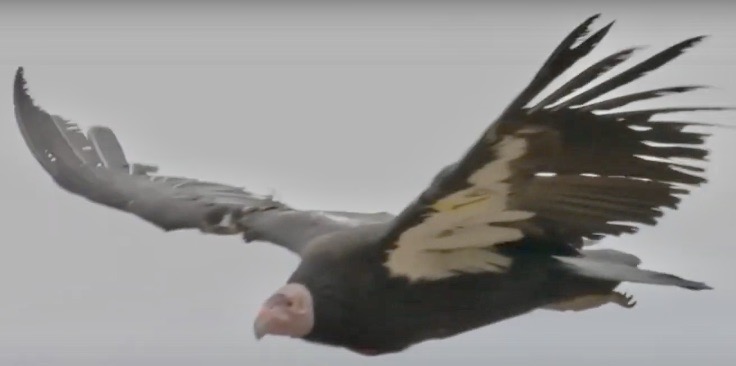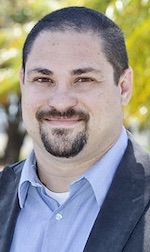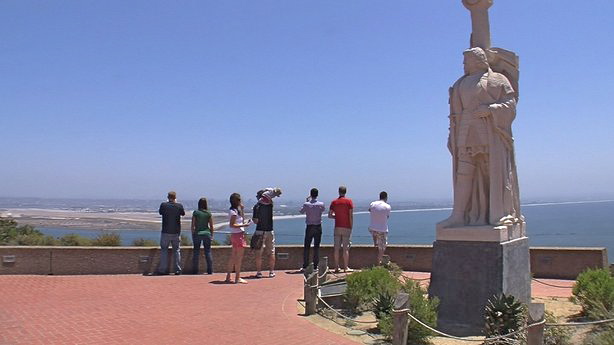Daily Business Report: Tuesday, May 24, 2022
UC San Diego researchers win big in 2022
DOD university research funding awards
by Steven Shultz
UC San Diego researchers fared well in this year’s Multidisciplinary University Research Initiative (MURI) competition, held annually by the Department of Defense (DOD). The DOD has announced MURI awards for two UC San Diego-led research teams and three teams of which UC San Diego researchers are a part.
Wei Xiong, associate professor of chemistry and biochemistry at UC San Diego, is the principal investigator for a team researching polariton chemistry, in which optical cavities are used to control physicochemical properties and dynamics of molecular systems. Also on the team are researchers from UC Merced, the City University of New York and Penn State. The team’s MURI award is sponsored by the Air Force Office of Scientific Research.
Laurel Riek, associate professor of computer science and engineering at UC San Diego, is the principal investigator for a team researching new computational and contextual models of human robot teaming in complex, uncertain environments. Also on the team are researchers from Penn State, Princeton, UC Santa Barbara, Michigan State, Notre Dame and the U.S. Military Academy. The sponsor of the team’s MURI award is the Office of Naval Research.
Top Photo: Wei Xiong holding a cavity mirror that forms polaritons. (Photo by Michelle Fredricks/UC San Diego).
Banned contaminants still threaten California condors
A new study has found contaminants that were banned decades ago are still imperiling critically endangered California condors. The condors may be at increased risk for reproductive impairment because they consume dead marine mammals along the California coast.
The research, led by San Diego State University (SDSU) and San Diego Zoo Wildlife Alliance (SDZWA) scientists, in collaboration with Centro de Investigación Científica y de Educación Superior de Ensenada and the National Oceanographic and Atmospheric Administration, found that marine mammals stranded on the California coast harbor relatively high levels of halogenated organic contaminants (HOCs). Researchers detected more than 400 contaminants in samples taken from stranded marine mammals that California condors may feed on.
On the California coast, the marine mammals had an estimated seven times more DDT and 3.5 times more PCBs than their counterparts in Baja California, Mexico. Other lesser-studied compounds were also detected. One group of these compounds was estimated to be 148 times more abundant in California marine mammals compared to those in Baja California.
Kratos Defense, Minn-Dak Farmers Cooperative
partner to deploy self-driving trucks
San Diego-based Kratos Defense & Security Solutions Inc. has teamed with the Minn-Dak Farmers Cooperative (MDFC) to launch self-driving trucks, easing the truck driver shortage burden using Kratos Autonomous Systems to ensure integrity of the agriculture supply chain as a critical national security concern.
Kratos Unmanned Systems’ core competency is affordable, disruptive, unmanned systems-related technology and products for aerial drones, surface vessels, ground-based vehicles, and related command, control, autonomy, and artificial intelligence.
The collaboration between Kratos and MDFC, one of America’s largest sugarbeet shareholder/grower cooperatives, was fostered by Grand Farm, a nonprofit group focused on facilitating agriculture technology innovation headquartered in North Dakota and combines Kratos’ innovative unmanned system technologies, with Minn-Dak’s agriculture and transportation expertise. The retrofitted solution adapts “Leader/Follower” truck platooning for hauling harvested sugarbeets between piling stations and the granulated sugar processing plant in Wahpeton, North Dakota.

U.S. Navy deploys Northrop Grumman’s
MQ-8C Fire Scout to Indo-Pacific
Northrop Grumman Corporation’s MQ-8C Fire Scout, the U.S. Navy’s autonomous, runway-independent helicopter system, made its second operational deployment, and first deployment to the Indo-Pacific Area of Responsibility aboard USS Jackson, providing military commanders greater maritime intelligence, surveillance, reconnaissance and targeting (ISR&T) capability.
MQ-8C Fire Scout continues to deploy on littoral combat ships with future deployments planned on Constellation-class guided-missile frigates and operations from shore sites under the Expeditionary Advance Base Operations concept, including potential logistics cargo role. Other potential future roles for the MQ-8C include mine countermeasures and anti-submarine warfare.
Cheryl Goddard named the new executive director
of the San Dieguito River Valley Conservancy
Cheryl Goddard has been named the new executive director of the San Dieguito River Valley Conservancy. Goddard brings 20+ years of local government experience and acumen: 15 years of County of San Diego land-use and environmental-planning experience; San Dieguito River Park JPA staff liaison for the Department of Parks and Recreation; six years of City of Chula Vista land-use and environmental-planning experience; responsible for the Multiply Species Conservation Program and CEQA compliance for city-initialed projects.
“Cheryl has a passion to balance preservation of natural and cultural resources while providing active and passive recreation opportunities for the public,” said Jim Smith, chair of the San Dieguito River Valley Conservancy board of directors.
Goddard has a master’s in public administration from SDSU; a Bachelor of Arts, Urban Studies and Planning from UCSD; a Bachelor of Arts, Ethnic Studies from UCSD; and minors in Environmental Studies and Philosophy from UCSD.
Travis Chester appointed vice president
and chief financial officer for Cubic Corporation
Travis Chester has been appointed as senior vice president and chief financial officer for Cubic Corporation. Chester will manage, lead, and set the strategic vision for the finance organization. He will report to Stevan Slijepcevic, president and chief executive officer. effective May 23.
Prior to joining Cubic, Chester held key leadership roles including multiple CFO roles, investor relations and financial planning and analysis at General Electric, Life Technologies, Honeywell International, and Vixxo Corporation and most recently as senior managing director at Pretium Partners.
Chester has a Master of International Management (MIM) from the Thunderbird School of Global Management and a Bachelor of Arts in History. He serves on the board of directors and Finance Committee of Valley Youth Theatre and as vice chair and former chair of the Investment and Audit committee of the University of Arizona Alumni Association Governing Board/Council.
Ben McCue of San Diego appointed to the
California Volunteers Commission
Ben McCue, 41, of San Diego, has been appointed to the California Volunteers Commission by Gov. Gavin Newsom.
McCue has been executive director of Outdoor Outreach since 2013.
He was conservation director of WILDCOAST from 2005 to 2013. McCue earned a Master of Arts degree in nonprofit leadership and management from the University of San Diego.
The position does not require Senate confirmation and there is no compensation.
McCue is registered without party preference.
MiraCosta College programmer selected
as statewide classified employee of the year
A MiraCosta College computer programmer, known for his innovative solutions that help students to be more successful, has been selected to receive the statewide Classified Employee of the Year award from the California Community Colleges Chancellor’s Office.
Mark Stramaglia, a senior enterprise applications developer and a faculty member in computer science at MiraCosta College, received the award Monday at the Board of Governors meeting of the state community college system.
He has been working in the Academic Information Systems department at MiraCosta College since 2013.
The award nomination from MiraCosta College noted that when the pandemic began, Stramaglia worked with his peers so that Microsoft 365 was available to all MiraCosta College students within three weeks, giving them the vital access they needed to Microsoft offerings as the college moved to remote learning.
“He has worked on several major projects to explore and identify ways in which technology could be used to improve the student experience and provide equitable access and outcomes and keeping end-users in mind,” the nomination form stated.
Wheelock Street Capital acquires two hotels
in Downtown San Diego’s Gaslamp Quarter
Wheelock Street Capital has acquired the Courtyard by Marriott San Diego Gaslamp located at 453 Sixth Ave., and the Moxy San Diego Downtown/Gaslamp Quarter, located at 831 Sixth Ave. from San Diego-based J Street.
The 90-room Courtyard and 126-room Moxy are a short walk from the San Diego Convention Center, Petco Park, and over 3 million square feet of commercial development in planning or currently under construction Downtown. The Courtyard features a popular rooftop bar and event space, the Nolen, which offers panoramic views of the San Diego skyline.
Island Hospitality, one of the leading hospitality managers in the U.S. with an existing portfolio of over 75 hotels and a significant existing presence in California, will assume management responsibilities under Wheelock’s ownership.
The acquisition marks Wheelock’s return to the San Diego hospitality market, having previously owned the Courtyard San Diego Downtown, Marriott Mission Valley and Hilton Del Mar.
SDSU ranks high in Money Magazine
ratings for quality, affordability
San Diego State University ranks No. 55 for quality, affordability and outcomes among more than 620 four-year colleges in the U.S., according to new rankings released Monday by Money Magazine. Money said it sought to rank relatively accessible colleges and universities by their value to students, showing that “your college doesn’t have to be exclusive to be a great investment.”
The 24 factors in the magazine’s methodology for measuring colleges included the net price of a degree after scholarships and grants, the six-year graduation rate for first-time students and transfers, and the share of students from low- and moderate-income backgrounds.
The data collection and number-crunching for the rankings were led by the magazine’s partner, Witlytic, and included “value-added” measures aimed at capturing graduates’ earnings after obtaining a degree and calculations of graduation rates against those expected from the economic and academic profile of its students.
Mirum Pharmaceuticals acquires Satiogen Pharmaceuticals
Mirum Pharmaceuticals Inc. has acquired Satiogen Pharmaceuticals Inc., a San Diego-based company. Satiogen, now a wholly-owned Mirum subsidiary, was an existing licensing partner for LIVMARLI oral solution and volixibat. Through the transaction, Mirum obtained all Satiogen licensing payments and Satiogen-owned intellectual property relating to LIVMARLI and volixibat.
“The acquisition of Satiogen is a strategic step that consolidates the economics of our commercial and pipeline programs,” said Chris Peetz, president and chief executive officer of Mirum. “The Satiogen team laid some of the foundational groundwork for the potential for IBAT inhibitors in liver disease that is now translating to substantial benefits for patients and a successful launch of LIVMARLI in Alagille syndrome. We thank the Satiogen team as we build on their work to continue to advance important therapies for rare disease.”
Illumina and Allegheny Health Network
to assess in-house cancer genomic profiling
Illumina Inc., a global leader in DNA sequencing and array-based technologies, and Allegheny Health Network (AHN), an integrated health system serving the Western Pennsylvania area, announced a collaboration to evaluate the impact of in-house comprehensive genomic profiling (CGP) to enhance patient care.
The collaboration will assess the value of in-house testing for both tissue and blood samples, versus sending those samples externally, and whether this approach may benefit cancer patients and the broader health care system. The collaboration will also work to identify instances where blood-based testing is most beneficial, depending on cancer stages and types.
Why hungry worms take risks
Whether it’s making rash decisions or feeling grumpy, hunger can make us think and act differently—“hangry,” even. But little is known about how hunger signals in the gut communicate with the brain to change behavior. Now, Salk scientists are using worms as a model to examine the molecular underpinnings and help explain how hunger makes an organism sacrifice comfort and make risky decisions to get a meal.
Their latest findings, published in PLOS Geneticson May 5, 2022, reveal that proteins in intestinal cells move dynamically to transmit signals about hunger, ultimately driving worms to cross toxic barriers to reach food. Similar mechanisms may also occur in humans.
“Animals, whether it’s a humble worm or a complex human, all make choices to feed themselves to survive. The sub-cellular movement of molecules could be driving these decisions and is maybe fundamental to all animal species,” says senior author Sreekanth Chalasani, associate professor in Salk’s Molecular Neurobiology Laboratory.

